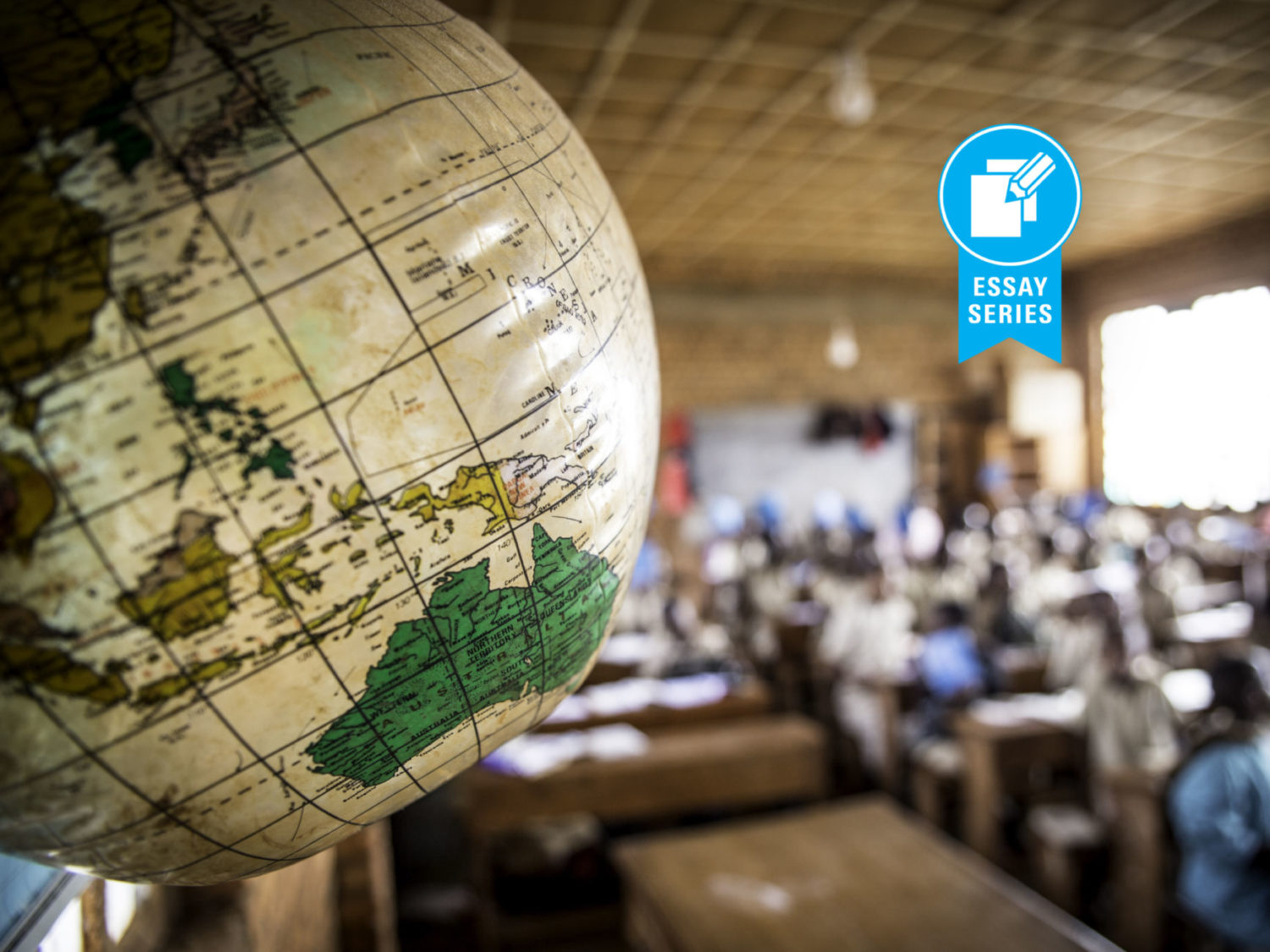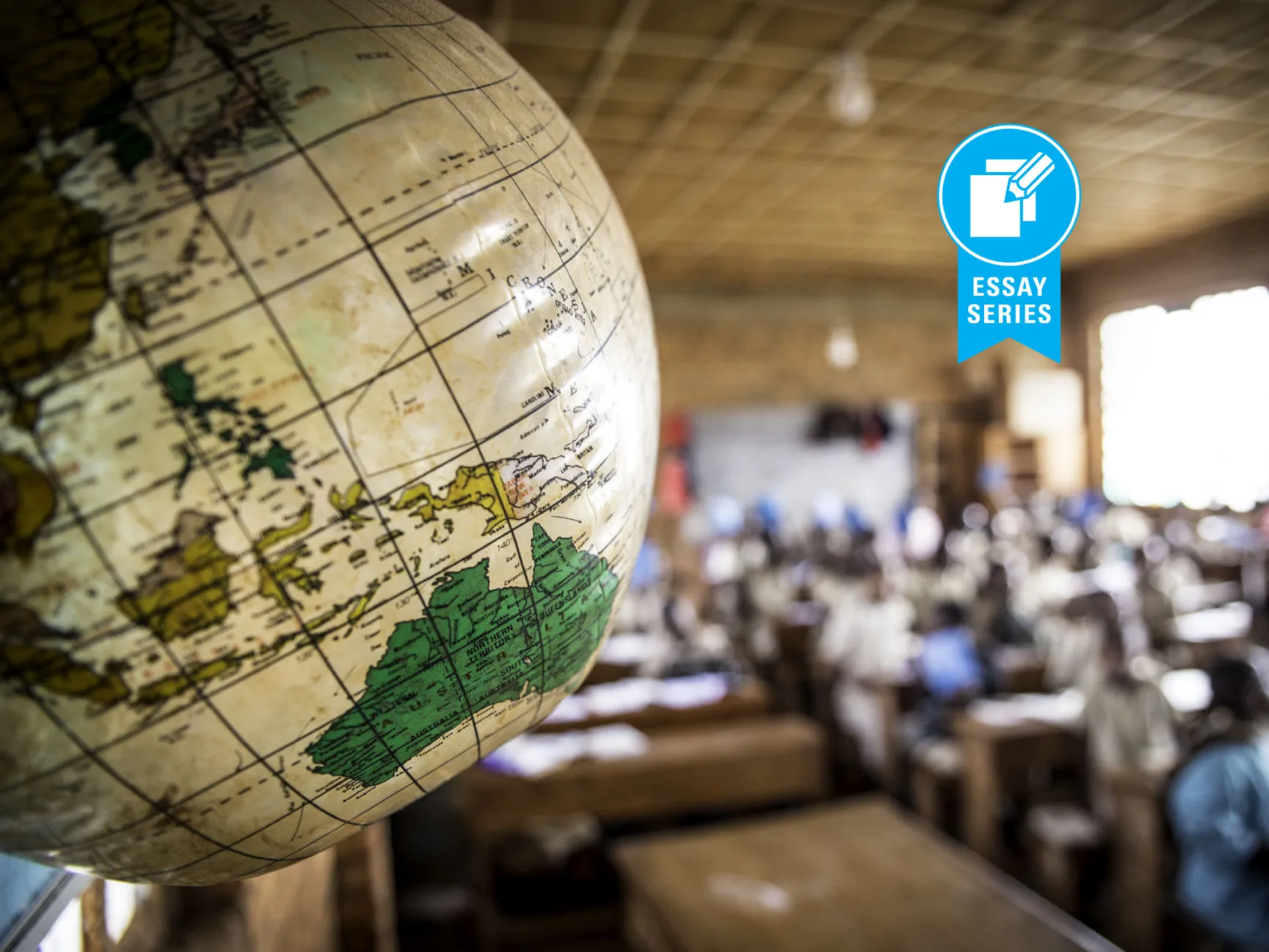
A coordinated response to child malnutrition
Nutrition: one of the most important foundations of human security
Human Security is the concept that aims to build a world where everyone can live in dignity, free from fear and want, through the protection and empowerment of all individuals. The concept also encompasses the principle that the global community, and each country, must prioritize building a world that secures these essential rights and freedoms. In other words, governments are required to protect individuals’ rights to life, livelihood and dignity and build resilient societies that can protect individuals against various threats. The Japan International Cooperation Agency (JICA), an implementing organization of Japan’s Official Development Assistance, has set Human Security as one of the most important pillars of our mission. JICA has been working hand in hand with its partners to lead the world with trust, seeking a free, peaceful and prosperous world where people can believe in a bright future and pursue various possibilities.
Nutrition is one of the most important foundations to achieve Human Security, and it is an issue in which JICA is very focused on due to its impact on all children’s ability to live with dignity. In order for all children to live with dignity, it is essential to “protect the vital core of all human lives in ways that enhance human freedoms and human fulfillment.” This means ensuring not just access to food, but to good nutrition; taking measures against poverty; and providing children with health, education, and protection based on Human Security.
To empower and equip individuals with necessary decision-making abilities to address their everyday nutritional needs, the global community, and each country, should establish a social system that protects people from starvation, chronic malnutrition, and obesity. In such societies, children can thrive and have a healthy future. However, COVID-19 has greatly threatened people’s rights to life, livelihood and dignity in the forms of malnutrition, poverty, education loss, rising conflicts and other challenges. According to the Lancet, a renowned British medical journal, although the international community has improved trends in global malnutrition over the last 10 to 20 years, there are concerns that the effects of COVID-19 could undo this progress. In the worst-case scenario, a UN report estimated that COVID-19 could push up to 132 million people into hunger by the end of 2020. Such effects can be devastating on children and other vulnerable groups, such as women, refugees and displaced persons. For these reasons, it is extremely important to act decisively to reverse worsening malnutrition trends caused by COVID-19. It is also required to ramp up efforts to address obesity and other underlining conditions that contribute to non-communicable diseases, which also increase the risk of severe COVID-19 illness.


COVID-19 is worsening malnutrition
Across the globe, at least one in every three of 700 million children under the age of five suffers some form of malnutrition. Among them, 149 million children under the age of five still suffer from nutritional stunting, 50 million from wasting or acute malnutrition, and 40 million are overweight, according to UNICEF. In recent years, the international community has amassed and analyzed information regarding the short- and long-term impacts of childhood malnutrition and its consequences on individuals’ life-long human capital potential. In particular, there is now evidence to show that children who do not receive quality nutrition during their first 1,000 days of life are more susceptible to retarded brain growth and are more likely to develop weakened immune systems, increasing the likelihood that they will contract infectious diseases more frequently than other people. For this reason, it is absolutely essential to appropriately time nutrition interventions to coincide with the first 1,000 days of a child’s life to not miss out on the opportunity to support their growth and development, even during times like this coronavirus crisis.
United Kingdom as a Leader on Global Nutrition
The United Kingdom has led the world in combating global malnutrition, including by coalescing other countries, international organizations, private businesses, and civil society to do more to address this challenge. In 2008, the Lancet put a spotlight on the importance and urgency of addressing global malnutrition. The UK then contributed to establishment of the Scaling Up Nutrition (SUN) Movement in 2010 and other initiatives that have led to global actions around improving nutrition. In addition to this leadership, the Department for International Development (DFID), now the Foreign, Commonwealth and Development Office (FCDO), contributed significant foreign assistance for nutrition programs to reach 50 million vulnerable people, primarily in Africa, including women, adolescent girls and children under age five, according to a report published by the Independent Commission for Aid Impact in 2020. We commend the UK for such commitments to address malnutrition, which aligns with JICA’s mission to achieve Human Security. While the FCDO’s budget has decreased this fiscal year, we believe that such cuts are only temporary and that the UK will return to leading the world on nutrition issues with increased funding in the aftermath of the COVID-19 pandemic.


Children who do not receive quality nutrition during their first 1,000 days of life are more susceptible to retarded brain growth and more likely to develop weakened immune systems. Nutrition interventions in that first 1,000 days are essential to support children’s growth and development.
Japan’s efforts to tackle global malnutrition by exploiting own experiences
While Japan also faced food shortages and malnutrition problems in the aftermath of WWII, Japan implemented new regulations and procedures across sectors to address these issues. These efforts included establishing policies to increase food production, introducing a National Health and Nutrition Survey, developing the Maternal and Child Health Handbook, creating a school lunch program, and expanding the roles of national dietitians and public health nurses. In the aftermath of WWII, while receiving foreign aid from the international community, Japan quickly resumed its school lunch program as an avenue to address childhood malnutrition. Given this experience, JICA has worked with developing countries to establish and strengthen their school lunch programs. As part of our efforts, in Madagascar JICA is helping to institute a school lunch program based on local resources as part of an education program. The benefits of such programs do not just end with addressing malnutrition, but it also extends to providing opportunities for education, reducing local poverty, and contributing to social stability.
Japan also improved its nutritional status by imbedding prenatal to infancy nutrition education within its maternal and child health services. Japan’s efforts to improve maternal and child nutrition are truly focused on the first 1,000 days of a child’s life. For example, through the use of the Maternal and Child Health Handbook and by implementing complementary feeding classes at health examinations, mothers in Japan have been able to receive nutrition counseling and breastfeeding guidance since the post-war period. Specifically, the Maternal and Child Health Handbook, which is an official home-based health record, provides expecting mothers with vital information regarding appropriate nutrition for themselves and their babies, as well as information related to infant care, including complementary feeding instructions. The booklet also includes the health records of the mother and her infant, as well as child growth records. In addition to these efforts, Japan has also invested in providing comprehensive nutritional guidance to children to set them up for long-term success. For example, children receive well-balanced school lunches during their pre-school, kindergarten and primary school-years, and they receive food and nutrition education (“Shokuiku”) to cultivate high-levels of health consciousness and good dietary habits from a young age.


As the world continues to face a sharp rise in childhood malnutrition countries must join forces for a coordinated response. With the UK’s strong track record on global nutrition, we look forward to continuing to see the UK lead and serve as a crucial partner in improving global nutrition.
Based on the lessons learned from these experiences, JICA is collaborating with international partners to support efforts to address malnutrition challenges in developing countries. In 2018, in partnership with DFID, JICA produced 130,000 Maternal and Child Health Handbooks in Ghana that were then used to improve maternal and child health and nutrition across the country. Additionally, JICA launched the “Initiative for Food and Nutrition Security in Africa (IFNA)” in partnership with the New Partnership for Africa’s Development (NEPAD), currently known as the African Union Development Agency (AUDA), at the occasion of the sixth Tokyo International Conference on African Development (TICAD Ⅵ) in 2016 with an aim to establish a framework for collaboration with African governments in order to accelerate the implementation of food and nutrition security policies on the ground. Under this initiative, JICA has been working diligently with African governments to expand activities to improve nutritional status across Africa by employing multi-sector approaches that combine best practices in health, agriculture, education and other relevant sectors.
Way forward for the Tokyo Nutrition for Growth Summit 2021
In order to accelerate international actions to improve global nutrition, Japan is looking forward to hosting the “Tokyo Nutrition for Growth Summit 2021 (N4G 2021)” this December. The “Nutrition for Growth Summit,” which was established in 2013 under the leadership of the UK Government, was first brought to light on the day of closing ceremonies of the 2012 London Olympics. There, the UK’s former Prime Minister David Cameron called on global partners and international stakeholders to come together to tackle global hunger and malnutrition. In this way, the UK galvanized action to improve global nutrition. With the understanding that good nutrition is foundational to achieving Human Security, Japan is partnering with countries to improve their nutritional outcomes to enable all children across the world to grow and thrive. To achieve this, JICA looks forward to taking advantage of opportunities to introduce our efforts to address ongoing challenges, despite the COVID-19 pandemic, and to strengthening its partnership with various partners, particularly with the UK Government, to accelerate global nutrition programming.
As the world continues to face a sharp rise in childhood malnutrition spurred by the COVID-19 pandemic, countries must join forces to implement a coordinated response, even in light of our own domestic challenges posed the pandemic. With the UK’s strong track record on global nutrition, we look forward to continuing to see the UK lead and serve as a crucial global partner in improving global nutrition.


